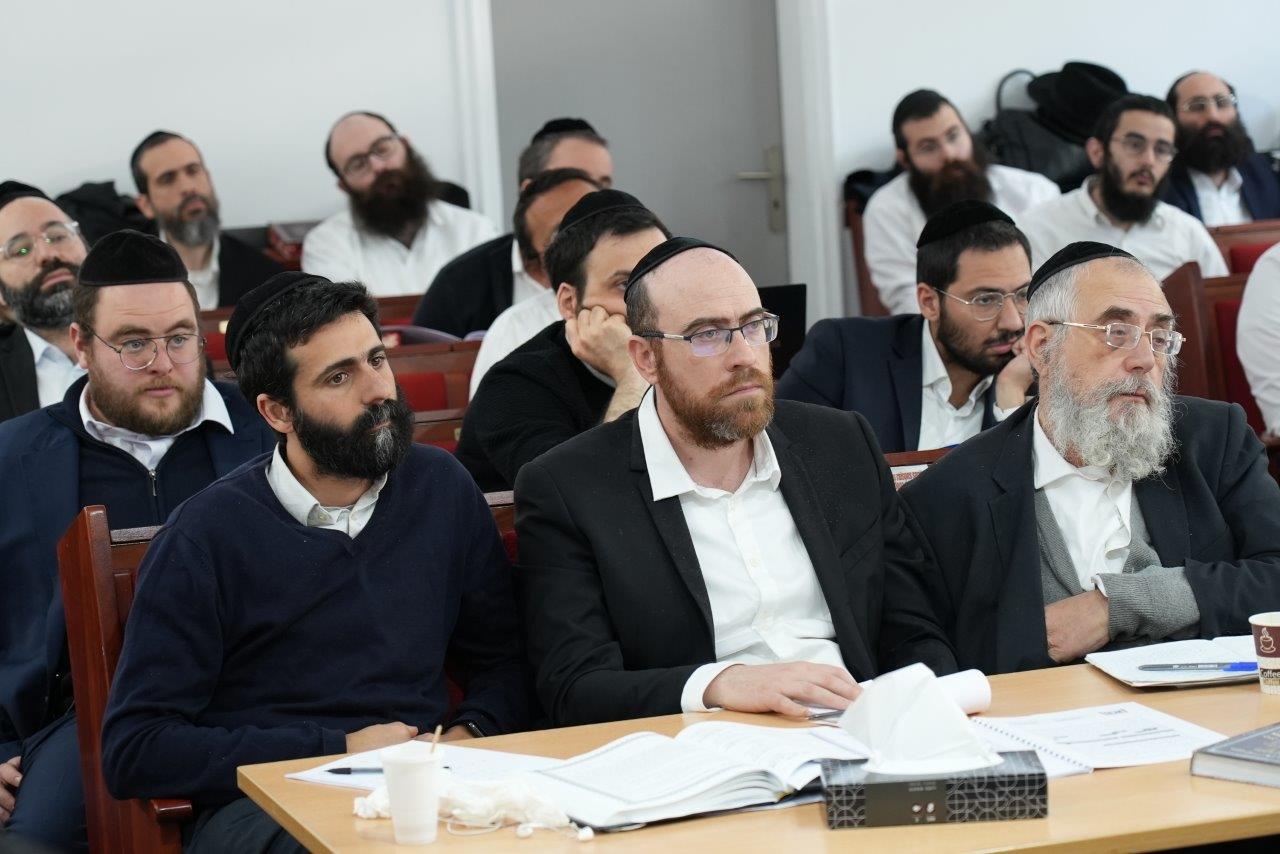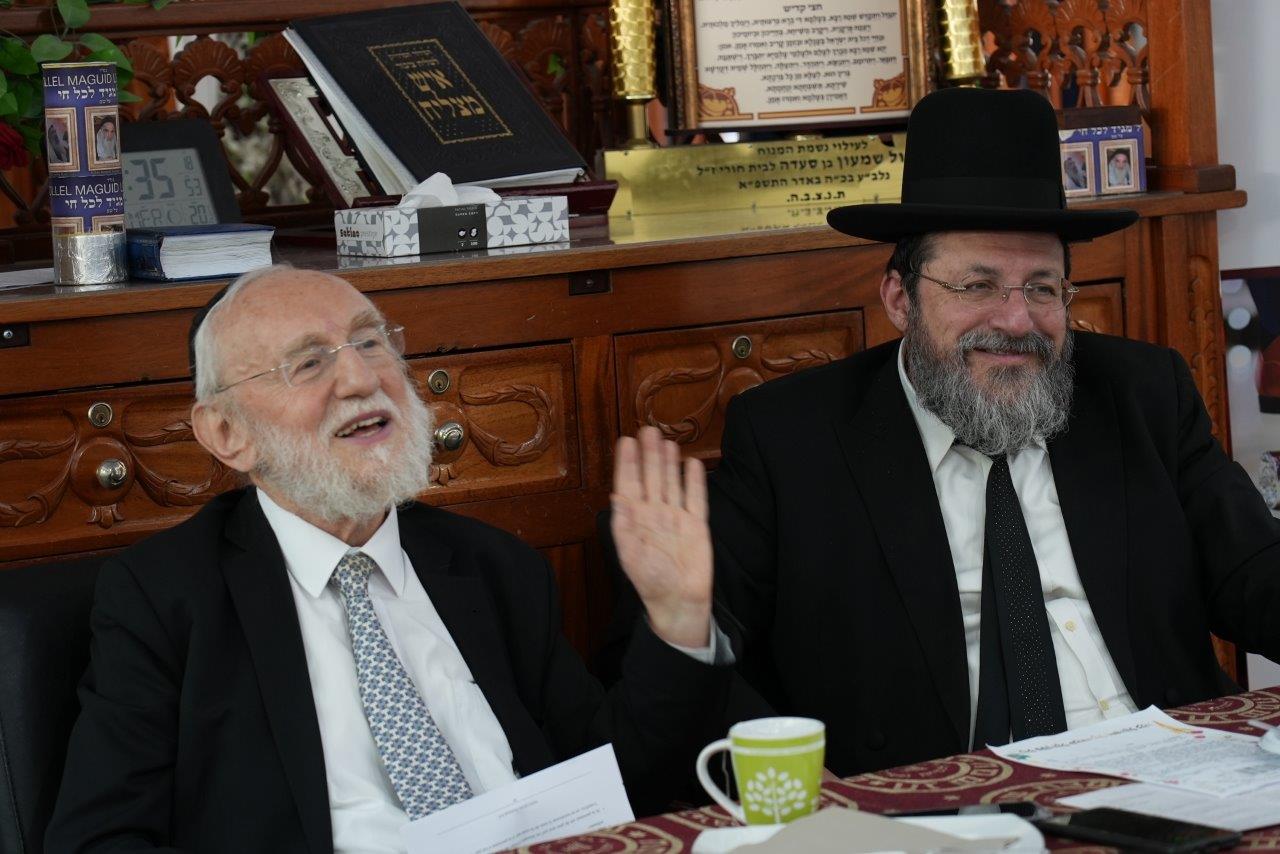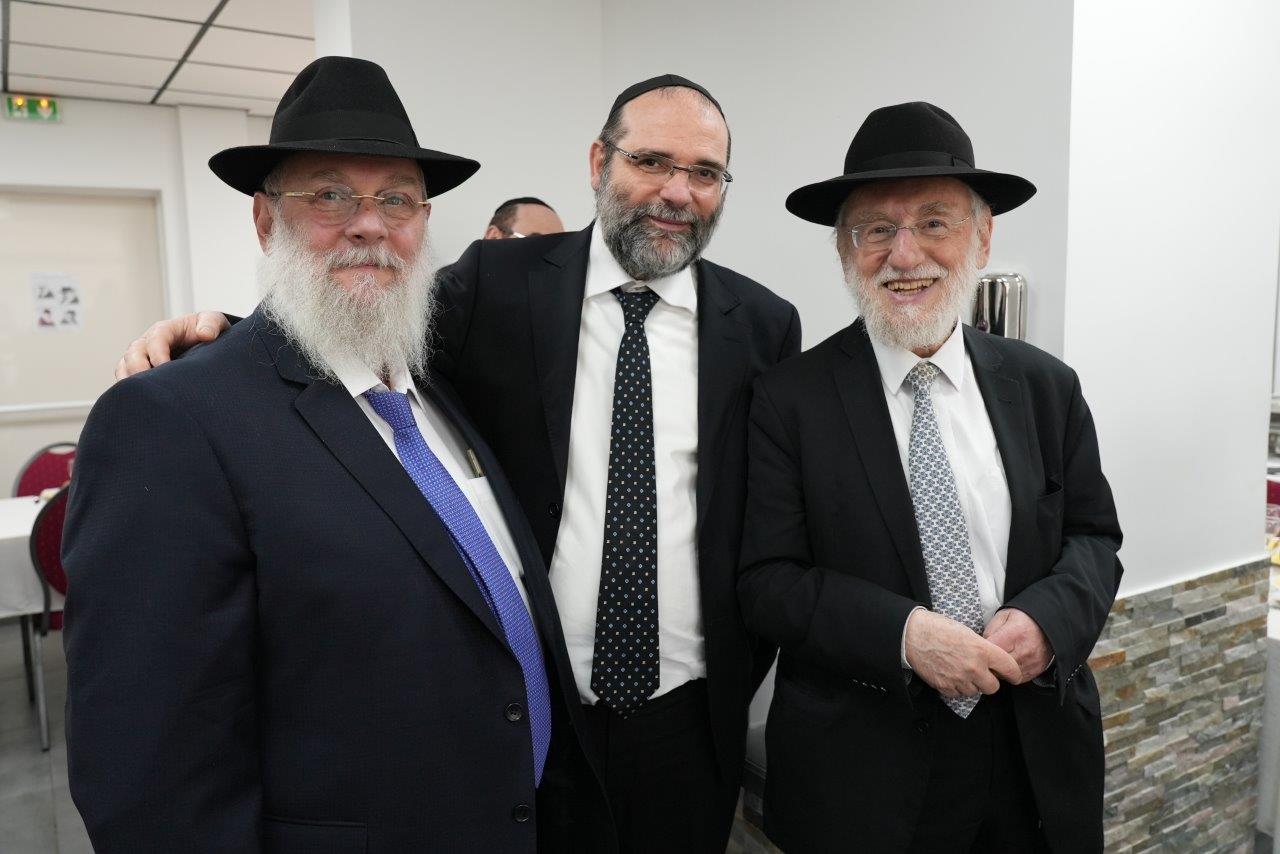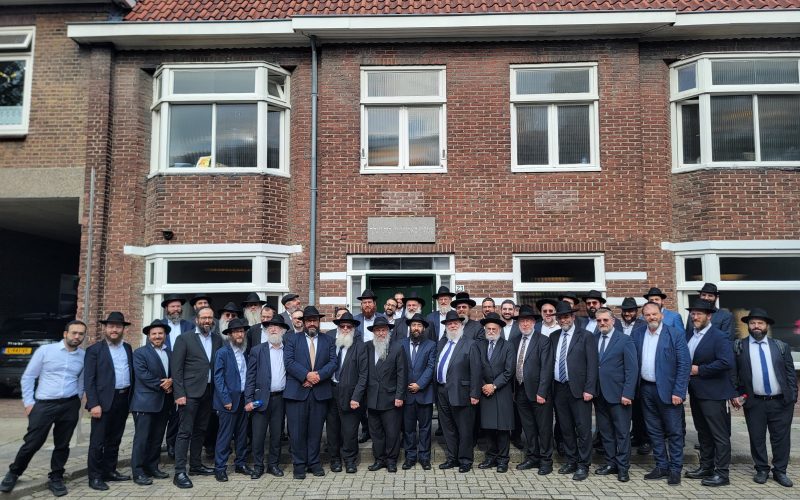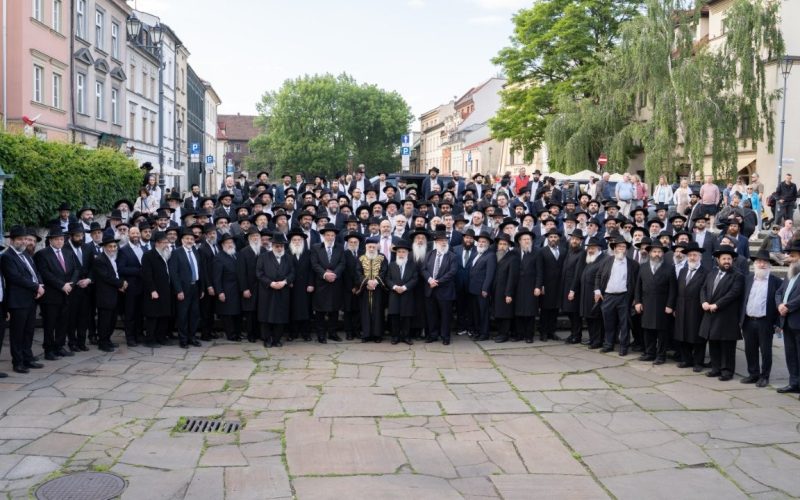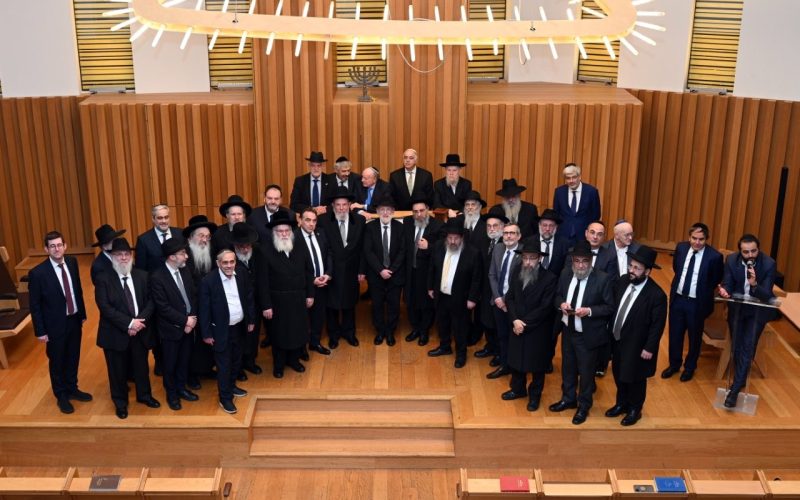Dozens of European Community Rabbis Complete a Course on Performing the Jewish Marriage Ceremony
The community rabbis studied the extensive and unique course over several months in accordance with the guidelines issued by the Rabbinical Centre of Europe
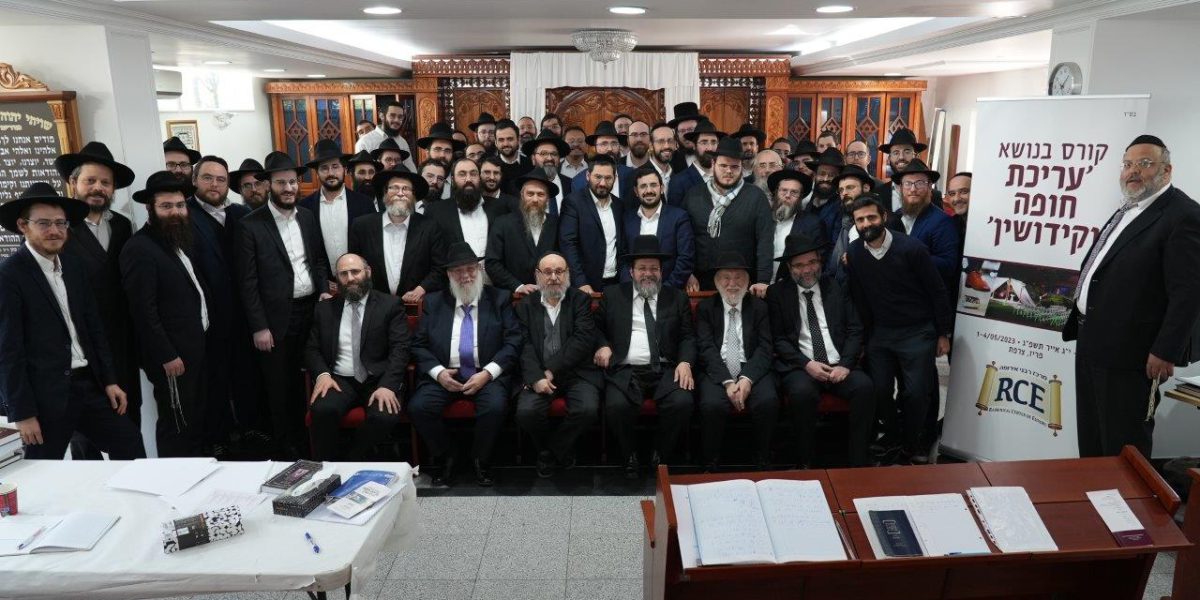
On May 4, community rabbis from France and other European countries completed a comprehensive course on conducting the chuppah and kiddushin ceremony. The course was funded by the Rabbinical Centre of Europe, as one of the many initiatives it offers for rabbis in Europe on subjects of Jewish observance.
Rabbi Eliyahu Bar Shalom, chief rabbi of Bat Yam, Israel, and the author of the well-known halacha series Mishpat HaKetubah, presented the comprehensive course to the rabbis.
At the conclusion of their studies, the rabbis then gathered for a three-day seminar, at the end of which they took a comprehensive test, covering all the material. The rabbis who passed the test will receive a certificate signed by members of the presidium and council of the RCE, confirming that they are qualified to perform Jewish marriages according to halacha.
One of the rabbis who participated in the seminar was Rabbi Yitzchak Guggenheim, chief rabbi of Paris and a member of the RCE. He delivered a fascinating lecture on the obligation of rabbis performing Jewish marriages to write the names of the bride and groom in the ketubah according to their Jewish origin and meaning.
Rabbi Guggenheim elaborated on the need to know the rules of grammar regarding the names that are written in the ketubot, and pointed out that when the names are translated from different languages into Lashon Hakodesh, significant mistakes often occur. He called on the rabbis to make sure that the ketubot that they prepare do not have any mistakes. His listeners were surprised to hear that over his decades of rabbinical service, he has seen many cases where couples who divorced were found to have a halachic mistake in their ketubah.
Rabbi Chmouel Tobaly, one of the dayanim in Paris and a member of the Rabbinical Council of Europe, expounded on the different types of witnesses who may or may not serve as eidim for a Jewish marriage, and shared examples from his rich experience of how he dealt with problems that arose under the chuppah.
Rabbi Levi Yitzchak Kahn, a dayan and member of the Lubavitcher Rabbinical Court in Paris and of the Rabbinical Council of Europe, gave a lecture on the laws of an adopted son.
The guest of honor at the conference, Rabbi Eliyahu Bar Shalom, delivered a series of lectures with guidance on a range of topics, which generated a lot of feedback. He gave a long list of details that the rabbis must adhere to for every chuppah. Rabbi Bar Shalom emphasized that in this generation, the rabbi who arranges the chuppah and kiddushin should make every effort to convince couples who are not mitzvah observant to marry according to halacha. “He must have the conversation on the subject in a pleasant manner, and with proper explanation. Along with this, he must be careful to observe all the rules of halacha that have been passed down through the generations, without deviating from them at all.”
The participants thanked the Chairman of the RCE, Rabbi Menachem Margolin, and the Vice President of the RCE, Rabbi Yossi Bainhaker, as well as Rabbi Avraham Aba Torezki, Secretary of the RCE, for their time and effort in organizing this very important seminar.
The CEO of the RCE, Rabbi Arie Goldberg, who personally supervised the seminar, said at the end of the conference that many young rabbis participated, and that this was another one of the many projects organized by the RCE, which works extensively to ensure that rabbis are properly trained in the myriad halachic matters they need for their profession.
The management of the RCE expressed special thanks to the host of the seminar, Rabbi Chmouel Houri, the rabbi of the Tunisian community in Paris and the RCE representative in France, who put in tremendous effort to ensure the seminar was a success.







